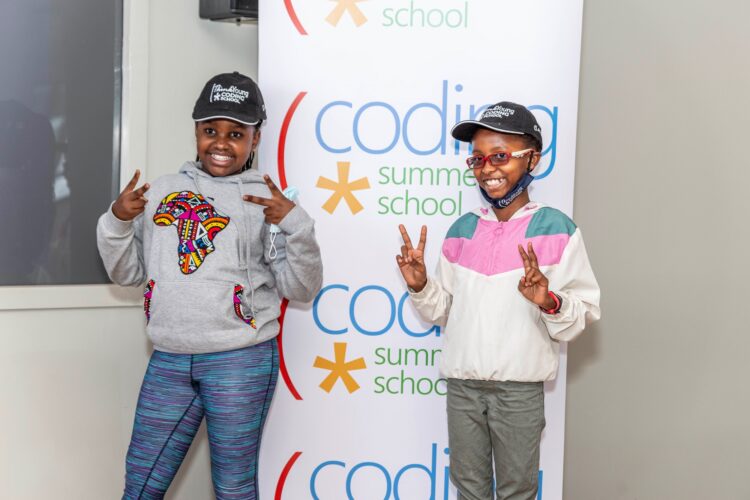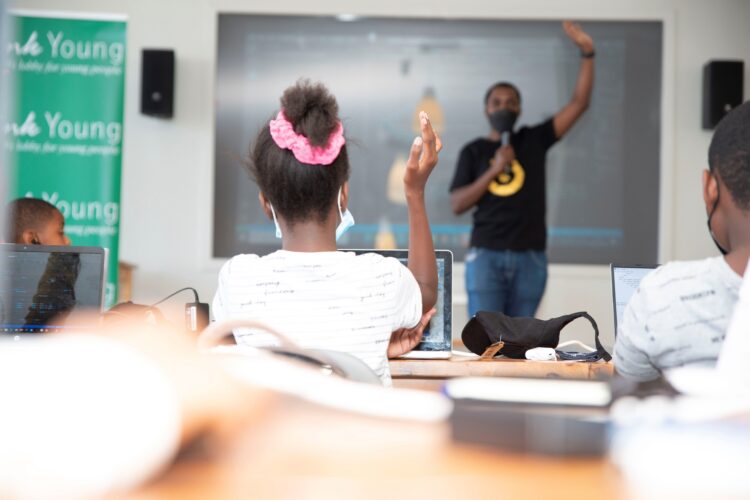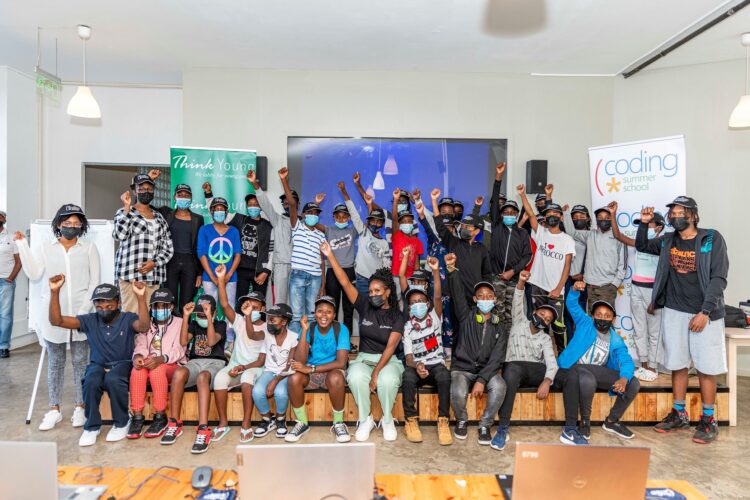Geared towards young programmers, the 2022 schools will feature an interactive curriculum that includes coding skills in the aviation industry, robotics and drones. The programme – which is free of charge – provides students with a unique experience of a school characterized by innovative approaches in a non-formal educational setting, addressing the real needs of the youth of today and the skills required by the labor market.
These real-world interactions want to make learning more approachable and long-lasting. Following the vocation of the program to align the labor market needs with the educational curriculum, students will develop oral and communication skills to deliver clear and effective presentations about their own ideas.
ThinkYoung and Boeing partnership
Since 2016, ThinkYoung, with the support of Boeing, has carried out 11 editions of the ThinkYoung Coding School: seven in Brussels, three in Nairobi and one in Amsterdam. More than 700 teenagers, of which over 60% girls, have experienced coding in a stimulating and inclusive learning context and are taking their first steps into the STEM world through our Coding School.
“We are happy to launch the 12th, 13th and 14th ThinkYoung Coding School in Kenya, Rwanda and Ethiopia. This couldn’t have been possible without The Boeing Company who has been supporting us since 2016 in teaching STEM skills to young people around the world”
says Andrea Gerosa, Founder of ThinkYoung.
“Every year we receive more and more applications, showing that our programme is consolidated in the region and that we are ready for more,”
he adds.

“At Boeing, we believe in supporting innovative partnerships that aim to improve access to competitive learning for young people, particularly girls. As we expect that Africa’s fast-growing aviation industry will require local aerospace programmers and coding specialists the ThinkYoung Coding School is particularly relevant and impactful,”
says Kuljit Ghata-Aura, President of Boeing Middle East, Turkey and Africa (META)
Community-based learning
“Our goal with the ThinkYoung Coding School is to train youth in demand-driven coding skills and help them pursue a higher education path in specific STEM subjects. We aim to continue focusing on increasing the participation of underserved African youth and women by equipping them with the skills needed to fill jobs now and in the future,”
concludes Gerosa.
One of the primary challenges in Kenya is the lack of 21st century and digital skills. In 2019, 30% of employers identified an inadequately skilled workforce as holding them back. Learning basic coding skills will improve the youth’s logical thinking and problem-solving skills, thereby unlocking more opportunities and unleashing the next generation of young digital innovators.

Girls are particularly encouraged to apply
Every edition welcomes between 60% and 70% of girls interested in taking their first steps in coding and learning the language of the future. The project aims to break the traditional stereotype that ICT is not for women and bring technology and the variety in this field closer to girls.
One of the goals of the ThinkYoung Coding School is to overcome male domination in the ICT sector by giving younger girls, female role models, early experiences of computer science, and to build a supportive environment capable of instilling confidence and interest. Girls are particularly encouraged to apply to the school!
For applications and more information about the ThinkYoung Coding School, please visit www.codingsummerschool.com

About ThinkYoung
ThinkYoung is the first think tank that focuses on young people. It was founded in 2009 and has expanded to have offices in Brussels, Geneva, Hong Kong, and Nairobi. It is a not-for-profit organization, with the aim of making the world a better place for young people, by involving them in decision-making processes and by providing decision-makers with high-quality research on youth’s conditions. ThinkYoung conducts studies and surveys, makes advocacy campaigns, writes policy proposals, and develops education programmes: up to date, ThinkYoung projects have reached over 800,000 young people.










